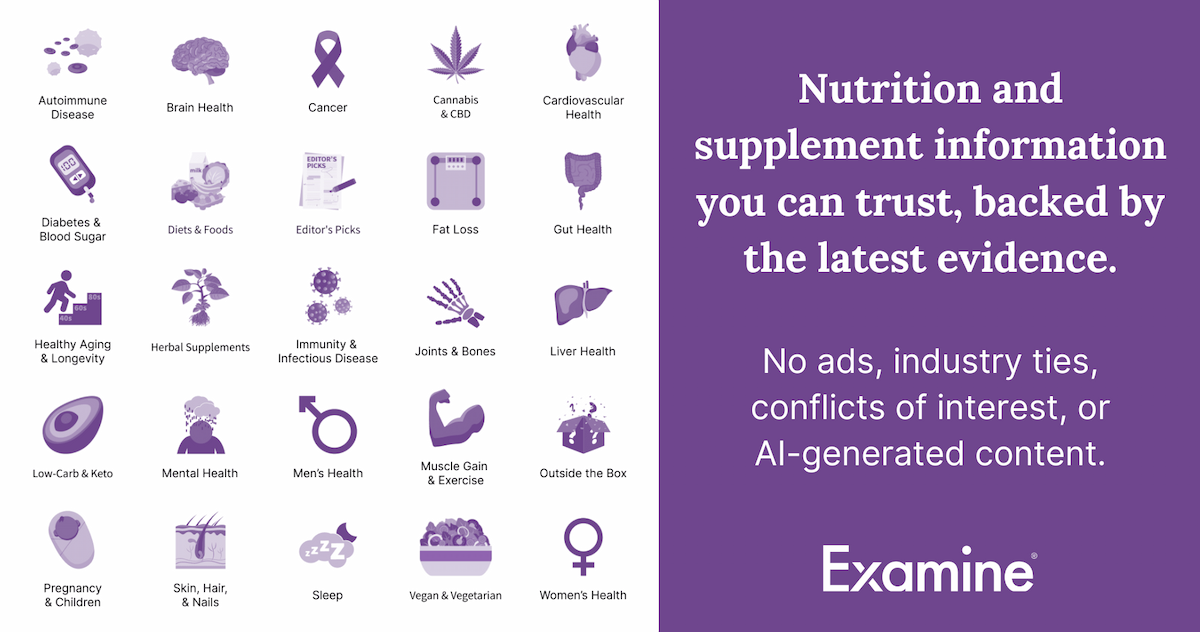- Reaction score
- 33
My c*m can reverse hair loss. I'm sure about that as my gf is nw0
Haha I have actually thought of that b4. I have heard of it used on the face as beauty cream or something and thought mmmm what if it grows hair. It gives life so it has to be potent like stem cells ...But haven't tried it yetMy c*m can reverse hair loss. I'm sure about that as my gf is nw0


so after 1 month they grew 4 hairs per square cm. and then 3 months later it moved up to 5.5 hairs per square cm. look at that margin of error lol.'Do Kimchi and Cheonggukjang Probiotics as a Functional Food Improve Androgenetic Alopecia? A Clinical Pilot Study
Abstract
Purpose: Probiotic supplementation demonstrates beneficial effects on serum lipid profiles. We hypothesized that probiotics could benefit patients presenting with alopecia, secondary to improved blood flow to the scalp.
Materials and methods: Our study included men with stage II to V patterns of hair loss based on the Hamilton-Norwood classification and women with stage I to III patterns of hair loss based on the Ludwig classification. All patients were administered 80 mL of Mogut® (a kimchi and cheonggukjang probiotic product) twice a day. Hair growth and numbers were measured using the Triple Scope System® (KC Technology, Korea) at baseline and after 1 and 4 months of administration of a kimchi and cheonggukjang probiotic product.
Results: At baseline, the mean hair count was 85.98±20.54 hairs/cm² and the mean thickness was 0.062±0.011 mm in all patients (n=46). Hair count and thickness had significantly increased at 1 month (90.28±16.13 hairs/cm² and 0.068±0.008 mm, respectively) and at 4 months (91.54±16.29 hairs/cm² and 0.066±0.009 mm, respectively). In this study, we found that a kimchi and cheonggukjang probiotic product could promote hair growth and reverse hair loss without associated adverse effects such as diarrhea.
Conclusions: We suggest that the observed improvements in hair count and thickness resulted from initiation of the anagen phase in hair follicles in response to probiotics.'

Do Kimchi and Cheonggukjang Probiotics as a Functional Food Improve Androgenetic Alopecia? A Clinical Pilot Study - PubMed
We suggest that the observed improvements in hair count and thickness resulted from initiation of the anagen phase in hair follicles in response to probiotics.pubmed.ncbi.nlm.nih.gov

seriously? i thought capsaicin was good for hairI would completely avoid spicy foods if you want to keep your hair.
Every time i see a post from @Poppyburner I get a dopamine hit.2013:
'Probiotic Bacteria Induce a ‘Glow of Health’
Radiant skin and hair are universally recognized as indications of good health. However, this ‘glow of health’ display remains poorly understood. We found that feeding of probiotic bacteria to aged mice induced integumentary changes mimicking peak health and reproductive fitness characteristic of much younger animals. Eating probiotic yogurt triggered epithelial follicular anagen-phase shift with sebocytogenesis resulting in thick lustrous fur due to a bacteria-triggered interleukin-10-dependent mechanism. Aged male animals eating probiotics exhibited increased subcuticular folliculogenesis, when compared with matched controls, yielding luxuriant fur only in probiotic-fed subjects. Female animals displayed probiotic-induced hyperacidity coinciding with shinier hair, a feature that also aligns with fertility in human females. Together these data provide insights into mammalian evolution and novel strategies for integumentary health.
[...]
We found that daily consumption of Lactobacillus reuteri [23], a human microbial isolate proven effective at suppressing colitis, added to drinking water led to lustrous fur similar to that seen in mice eating probiotic yogurt (Figs. 1B–D). This included significantly (p<0.001) thicker skin, (503.1±94.16 vs 249.8±48.75 in males and 455±93.03 vs 314.7±60.06 in females, respectively), more anagen-phase hairs (anagen 74%, catagen 6%, telogen 14% vs anagen 36%, catagen 0% telogen 64% in males and anagen 66%, catagen 10%, telogen 24% vs anagen 30%, catagen 20%, telogen 50% in females), more sebocytes (40.55±7.193 vs 29.35±8,499 in males and 46.05±10.05 vs 25.75±11.72 in females) and a higher sebocyte proliferation index (0.456±0.105 vs 0.296±0.077 in males and 0.416±0.082 vs 0.268±0.08 in females) than mice consuming control chow alone (Figure 5A–D). These data showed that L. reuteri exposure was sufficient for significant physiological changes including more acidic pH levels in mice (Fig. 1D). Furthermore, when directly comparing mice consuming L. reuteri in their drinking water versus mice eating the probiotic yogurt, there were no significant differences between hair follicles in their subcutis (not significant; p = 0.98 in males and p = 0.06 in females) or in follicular staging (NS; p = 0.44 in males and p = 0.89 in females) or in sebocyte counts (NS; p = 0.89 in males and p = 0.76 in females) and proliferation (NS; p = 0.29 in males and p = 0.76 in females)(Fig. 5) or fur luster (NS; p>0.05) (Fig. 1). Thus, in these mice comparable integumentary benefits were achieved with either consumption of probiotic yogurt or with routine feeding of purified L. reuteri organisms.
[...]
Although effects imparted by diverse bacterial species classified as ‘probiotics’ may vary widely, we show specifically that Lactobacillus reuteri bacteria alone were sufficient for features such as follicular anagen-phase shift, sebocytogenesis, and acidic mucocutaneous pH, and that these events required Il-10, culminating in an epidermal display of fitness. We examined hyperacidity in human subjects finding that Lactobacillus sp and acidic pH coincided with life stages of peak fertility, supporting findings of earlier studies in women [12]. We postulate that probiotic-triggered glowing skin and hair typical of youth recreated in our aged animals likely arises from microbe-triggered effects on inflammation within skin. Indeed, mice lacking anti-inflammatory cytokine Il-10 failed to exhibit integumentary benefits after eating probiotics. Inversely, systemic treatment with anti-IL17A antibody mimicked animals feeding on yogurt or L. reuteri, supporting an immune-mediated mechanism. This anti-inflammatory effect may emerge systemically from the gastrointestinal (GI) tract [26] impacting both systemic and local immune health [2], [3], [24]. Ingestion of Lactobacillus sp was previously shown to dampen stress-related inflammatory responses in the skin through a gut-brain-skin axis [15], at least in part by regulating emotions via the vagus nerve [27]. Alternatively, recent clinical trials indicate topical probiotic lysates may be directly beneficial to skin [28] highlighting the possibility of more local immune-mediated mechanisms of microbes distributed during grooming.
[...]
Male pattern baldness is incompletely understood, but is attributed to complex interactions between genetics, hormones and inflammation [43]. Extrapolation from data of mice to humans suggests that excessive inflammation in the form of uncontrolled IL-17A subverts scalp hair growth, and this may be remedied by eating probiotic bacteria such as L. reuteri, but interpretation is complicated by disparities in hair on scalp versus other body sites of these species [37]. Nonetheless, aged male mice eating probiotics displayed Il-10-dependent dense fur together with elevated testosterone and increased virility (data not shown) when compared with mice eating control diet alone. It is unknown whether eating of probiotic yogurt may forestall or reverse follicular activities of hormones in human subjects.'
Probiotic Bacteria Induce a ‘Glow of Health’ - PMC
Radiant skin and hair are universally recognized as indications of good health. However, this ‘glow of health’ display remains poorly understood. We found that feeding of probiotic bacteria to aged mice induced integumentary changes mimicking peak ...www.ncbi.nlm.nih.gov
'Lactobacillus reuteri is a species of bacteria that belongs to one of the major lactic-acid producing genera of bacteria. It can be found in the human intestinal tract, though not always and often in relatively low numbers. [...]'
Lactobacillus reuteri increases the number of Treg cells in the intestines, which can then be absorbed back into the blood to benefit the rest of the body.'

Lactobacillus Reuteri benefits, dosage, and side effects
Examine simplifies nutrition and supplementation — through meticulous analysis of the latest scientific research — to help answer your questions on how to be healthier.examine.com
I agree it is repuslive. BUT I WANT MY HAIR BACK!Kimchi tastes absolutely disgusting. I would rather dermaroll and tolerate the pain than eat Kimchi
seriously? i thought capsaicin was good for hair
in my anecdotal experience east asian and south american food tends to have a good deal of caspaicin in it and people from those regions tend to keep their hair longer than the rest of usI mentioned this elsewhere, there -was- a study claiming that because capsaicin was a janus kinase inihbitor and that it could improve hair growth, however and I mentioned this elsewhere, that there is also another study that says that capsaicin can actually send hairs into dormancy or even damage the follicle.
It doesn't help that anecdotally every person I've known who has consumed a diet with a majority of spicy foods lost hair.
I abandoned pretty well everything spicy and that was hard, I love chili oil and not having that hurt pretty bad.
My hair has been in better shape than it has been in a good long while.
I can't tell if you are kiddingMy cousin is half asian and when he started consuming a lot of spicy foods his hair loss took off like a rocket.
I mentioned this elsewhere, there -was- a study claiming that because capsaicin was a janus kinase inihbitor and that it could improve hair growth, however and I mentioned this elsewhere, that there is also another study that says that capsaicin can actually send hairs into dormancy or even damage the follicle.
It doesn't help that anecdotally every person I've known who has consumed a diet with a majority of spicy foods lost hair.
I abandoned pretty well everything spicy and that was hard, I love chili oil and not having that hurt pretty bad.
My hair has been in better shape than it has been in a good long while.
bro your username is bald a**h**I take spicy foods every single day of my life and I have the best hair of any male in my family, in which no one else likes spicy food.
I take spicy foods every single day of my life and I have the best hair of any male in my family, in which no one else likes spicy food.
